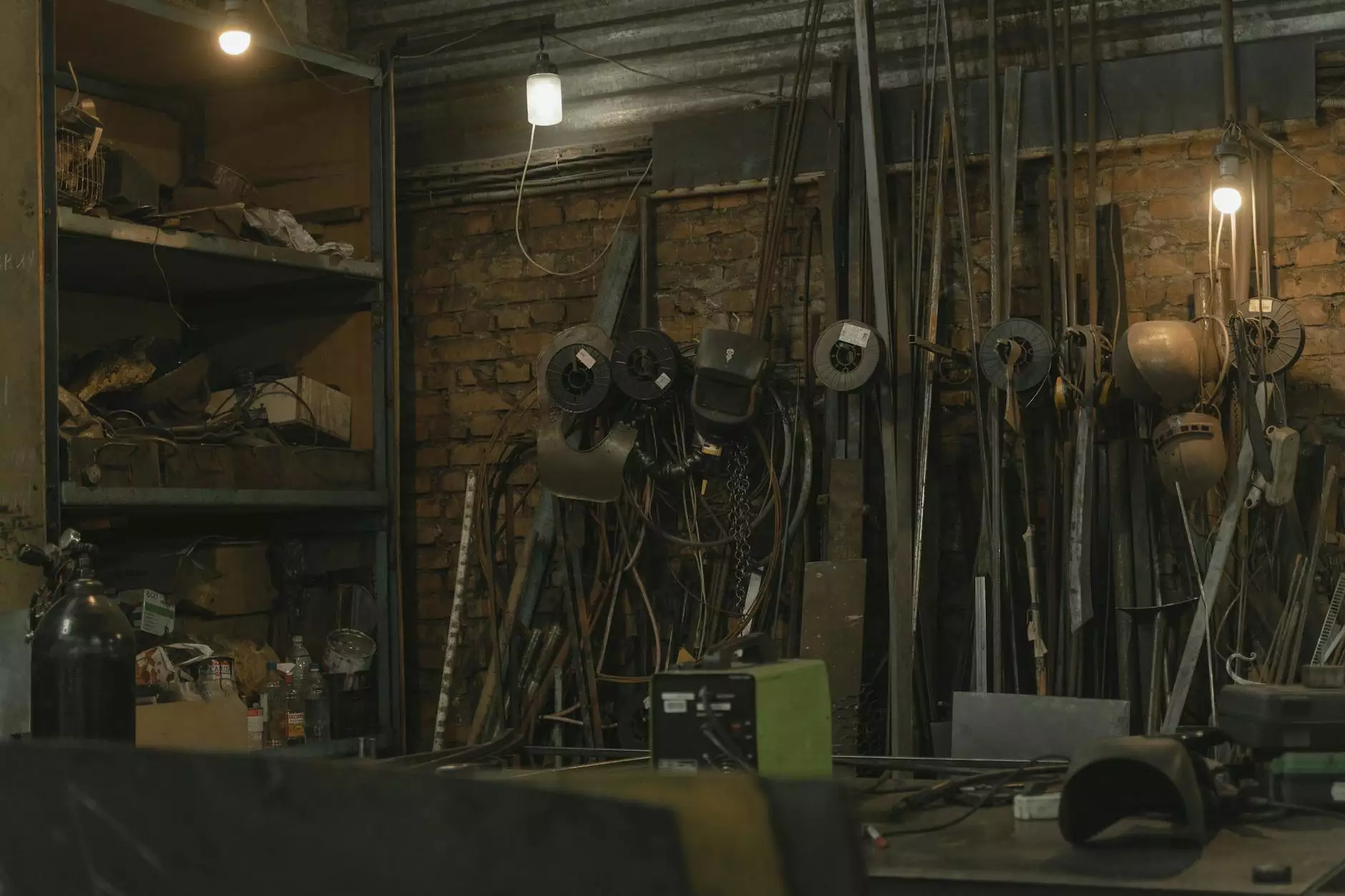Forged Carbon Car Parts: Revolutionizing the Automotive Industry

In today's dynamic automotive landscape, the demand for innovative materials and advanced technology is at an all-time high. Among these materials, forged carbon car parts have emerged as a game changer, offering a unique blend of lightweight strength and aesthetic appeal. These cutting-edge components are becoming increasingly prevalent in the realm of auto parts & supplies, making a significant impact on design and performance for car dealers and consumers alike.
What Are Forged Carbon Car Parts?
Forged carbon is a proprietary material that combines the best attributes of carbon fiber with a unique manufacturing process to create exceptionally strong and lightweight automotive parts. Unlike traditional carbon fiber, which requires a labor-intensive layering process, forged carbon utilizes small pieces of carbon fiber that are compressed and heated under pressure. This results in a homogeneous material that offers greater strength and durability compared to its counterparts.
The Advantages of Using Forged Carbon in Automotive Applications
Forged carbon car parts boast numerous advantages that make them an attractive option for manufacturers and vehicle owners. Here are some key benefits:
- Lightweight Properties: One of the most appealing features of forged carbon is its lightweight nature. This is particularly beneficial for enhancing vehicle performance, improving fuel efficiency, and optimizing handling dynamics.
- Superior Strength: The forging process increases the strength of the material, making it more resistant to impact and wear compared to traditional materials.
- Aesthetic Appeal: The unique, irregular patterns of forged carbon provide a distinctive look that appeals to car enthusiasts who value both style and substance.
- Environmental Sustainability: Many forged carbon parts are made using recycled materials, contributing to eco-friendliness and sustainable manufacturing practices.
- Design Flexibility: Forged carbon can be molded into complex shapes, allowing for innovative designs and customizations in auto parts manufacturing.
Applications of Forged Carbon Car Parts
The versatility of forged carbon allows it to be utilized in various automotive components. Some common applications include:
- Body Panels: Forged carbon can be used to create lightweight body panels that maintain structural integrity while reducing overall vehicle weight.
- Wheels: Forged carbon wheels offer significant weight savings, leading to improved performance and handling characteristics.
- Engine Components: From brackets to housings, forged carbon parts can withstand high temperatures and stress, making them ideal for engine applications.
- Interior Trim: The visually striking appearance of forged carbon makes it a popular choice for premium interior finishes and accessories.
Why Choose Forged Carbon Car Parts Over Traditional Materials?
While traditional materials such as aluminum and steel have been staples in automotive manufacturing for decades, forged carbon offers distinct advantages that are transforming the industry:
1. Weight Reduction
Reducing weight is crucial for enhancing vehicle efficiency and handling. Forged carbon car parts are significantly lighter than steel and even aluminum, providing a performance edge without compromising strength.
2. Increased Performance
The strength-to-weight ratio of forged carbon contributes to better acceleration, braking, and cornering dynamics, making any vehicle equipped with these parts more responsive and agile.
3. Enhanced Durability
Traditional materials can suffer from fatigue over time due to stress and wear. However, forged carbon is designed to withstand rigorous conditions, making it an ideal choice for high-performance vehicles.
Forged Carbon Car Parts: A Sustainable Future
As environmental concerns continue to rise, the automotive industry is under pressure to adopt sustainable practices. Forged carbon car parts can play a pivotal role in this transition:
- Recyclability: Many manufacturers are incorporating recycled carbon into their forged carbon production processes, reducing waste and dependency on virgin materials.
- Lower Carbon Footprint: Producing and using lighter materials contributes to lower emissions during manufacturing and throughout the vehicle's lifecycle.
Investing in forged carbon technology not only benefits performance but also aligns with sustainability goals that many companies are striving to achieve.
Understanding the Forged Carbon Manufacturing Process
The process of creating forged carbon parts involves a few critical steps:
- Material Preparation: Carbon fiber pieces are cut and prepared for the forging process.
- Compaction: The small pieces of carbon fiber are stacked and compressed in a mold to achieve the desired shape under high pressure.
- Heating: The compressed fibers are then heated, allowing the individual strands to bond and form a solid part.
- Finishing: Once cooled, the forged carbon parts are inspected, finished, and treated to meet specific automotive standards.
Forged Carbon vs. Carbon Fiber: What's the Difference?
While both forged carbon and traditional carbon fiber fall under the same umbrella, there are key differences:
1. Production Techniques
Traditional carbon fiber involves layering sheets of fabric and resin, while forged carbon is a more straightforward process that combines small pieces and fixes them in a mold. This leads to quicker production times and reduced costs.
2. Performance Characteristics
Forged carbon has superior impact resistance compared to traditional carbon fiber, making it a more durable option for high-performance applications.
Integrating Forged Carbon Car Parts into Your Vehicle
Whether you’re a car dealer, broker, or an enthusiast looking to upgrade your vehicle, there are several considerations for integrating forged carbon parts:
- Compatibility: Ensure that the forged carbon parts you’re interested in are compatible with your vehicle’s specifications.
- Manufacturer Reputation: Invest in parts from reputable manufacturers known for their quality and performance.
- Custom Solutions: Many companies offer custom forged carbon solutions to suit specific design preferences and performance needs.
Shop Forged Carbon Parts at CustomClass.net
If you’re ready to explore the exciting world of forged carbon car parts, look no further than CustomClass.net. As a premier destination for auto parts & supplies, we offer a wide range of forged carbon components that deliver exceptional performance and style. Our team of experts is dedicated to helping you find the perfect parts to enhance your vehicle.
At CustomClass.net, we pride ourselves on our commitment to quality. Whether you’re a car dealer looking to upgrade your inventory or a car broker in search of the latest innovations, you can depend on us for top-notch service and products. Join the revolution in automotive materials and experience the countless benefits of forged carbon car parts today!
Conclusion: The Future of Automotive Innovation
The forged carbon car parts trend represents a significant leap in automotive technology. With their superior strength, lightweight properties, and sustainability, these components are set to redefine performance standards in the industry. As we move towards a more environmentally conscious future, embracing innovative materials like forged carbon is not just a choice; it's an essential step for anyone dedicated to enhancing their automotive experience.
For more information, detailed specifications, or to browse our extensive inventory, visit CustomClass.net today!









